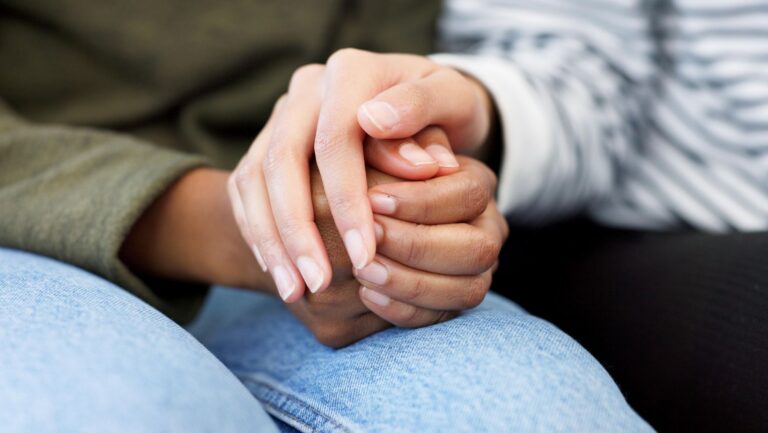Last Updated on September 25, 2025 by kidron
Healing from addiction is hard. Healing as a couple? Even harder. But also possible and incredibly powerful.
Recovery means more than simply quitting substances or breaking habits. It’s about learning to live again. To love again. If you and your partner are choosing to walk this path together, you’re already showing courage. The journey won’t be perfect. But it can be real, meaningful, and deeply rewarding.
Understand the Role of Addiction in Your Relationship
Addiction changes everything. It shifts how you trust, how you talk, and how you connect.
You might’ve seen parts of your relationship fall apart. Trust may have cracked. Communication might’ve turned cold or defensive. And intimacy, emotional or physical, probably took a hit.
So now’s the time to get honest. Talk about what happened, but do it without pointing fingers. The goal isn’t to rehash every argument or mistake. It’s to understand what substance abuse did to both of you. Together, you can decide how to build something new.
Set Shared Goals for Recovery
You’re healing individually, but you also need to grow together. That’s where shared goals come in.
Start small. Maybe you can create a plan for attending therapy each week. Or track your individual and shared recovery milestones in a journal. Set financial goals, health goals, or spiritual ones, whatever fits your journey.
Along the way, it helps to use tools that support both structure and connection. Programs offered by facilities like Jackson House Addiction Treatment & Recovery Centers understand the unique challenges couples face and can provide guidance, accountability, and practical coping strategies to help you move forward together.
When you make goals together, you remind each other you’re on the same team. Don’t try to fix everything overnight. Choose progress over pressure and keep revisiting your goals as you grow.
Restore Trust With Small, Steady Actions
Trust doesn’t snap back into place. It rebuilds slowly, step by step.
You do that by showing up. Being honest. Following through on what you say you’ll do. Even small actions, like showing up on time or keeping your word about chores, matter more than you think.
If trust was broken, be patient. It takes time to feel safe again, but with consistency, reliability, and empathy, you can earn it back. And you can give it, too.
Communicate Honestly and Often
Silence can feel safe, especially when you’re afraid of saying the wrong thing. But silence builds walls.
You don’t need to have deep talks every night. Just check in. “How are you feeling today?” goes a long way. Use “I” statements. Say, “I feel anxious when…” instead of, “You always…”
When words get stuck, try writing them down or talk with someone trained in couples counseling who can guide the conversation. Communication doesn’t need to be perfect. It just needs to be real.
Navigate Relapse and Setbacks as a Team
Recovery isn’t a straight line. There might be relapses. There will be setbacks, but they don’t have to break you.
If one of you slips, it doesn’t mean everything is lost. What matters most is how you handle it. Avoid blame. Focus on what triggered the relapse. What needs to change? What support is missing?
Stay grounded. Create a plan together for what to do if relapse happens again. That way, you’re not reacting in panic. You’re responding with a shared understanding and a path forward.
Make Space for Individual Healing
Even when you’re healing together, you still need room to heal on your own.
Your partner can’t process your guilt for you. And you can’t carry their pain. That’s why individual therapy, support groups, or solo journaling can be so important.
Give each other space to explore personal growth. Respect boundaries. Support without trying to fix. You’ll be surprised how strengthening your own foundation can lift the relationship too.
Find Healthy Ways to Reconnect
Recovery opens a new chapter. But you still need to write it together. That includes rediscovering each other.
This part isn’t about schedules or plans. It’s about feeling close again. Joyfully. Gently. Without pressure.
Touch matters. Small gestures like holding hands during a movie or leaning into a hug before work can bring you back to each other. Laughter helps, too. So does play. Dance in the kitchen. Watch your favorite comedy. Look each other in the eye and share a quiet smile.
Rebuilding intimacy doesn’t start with sex. It starts with emotional safety. With being silly again. With feeling seen. With knowing you’re still wanted. Little moments of closeness can grow into something deeper.
You don’t need to rush anything. Just stay open to those moments. Affection doesn’t need to be perfect. It only needs to be real.
Lean on a Strong Support System
You don’t have to do this alone. Trying to manage recovery without support can quickly become overwhelming.
Professional help plays a vital role in your journey. Ongoing couples therapy can give you a safe space to face challenges together. Services like couples therapy Calgary provide guidance and support tailored to partners navigating the unique challenges of recovery together. Recovery groups offer connections with people who truly understand your experience. You might also consider a 12 step program, which provides structure, peer support, and a sense of shared accountability.
However, those aren’t the only sources of support that matter. Encouragement from trusted friends or family can be just as grounding, especially when emotions start to feel intense.
There’s something powerful about being seen. When others recognize your effort, it helps you stay committed. And when support comes from outside your relationship, it eases the strain between you. You’re still in this as a team, but you don’t have to hold everything on your own.
Celebrate Milestones
Recovery is full of hard days. That’s why you need to celebrate the good ones.
Mark your first month sober with a quiet dinner. Celebrate a tough therapy breakthrough with a walk in the park. Write each other notes when one of you hits a personal goal.
It’s not about throwing parties. It’s about noticing. Noticing that you’re still here. Still trying. Still choosing each other.
These small wins become the glue that holds your progress together.
Final Thoughts
Recovery isn’t about getting everything right. It’s about commitment. Showing up. Messing up. Trying again.
As a couple, you’re not just healing from addiction. You’re creating something new. Stronger. More honest. More connected.
You’re going to stumble. But you’ll also rise together.
And every day you choose healing, you choose love. Keep choosing it. That ongoing choice is what defines the path for couple recovery, not perfection but persistence.




